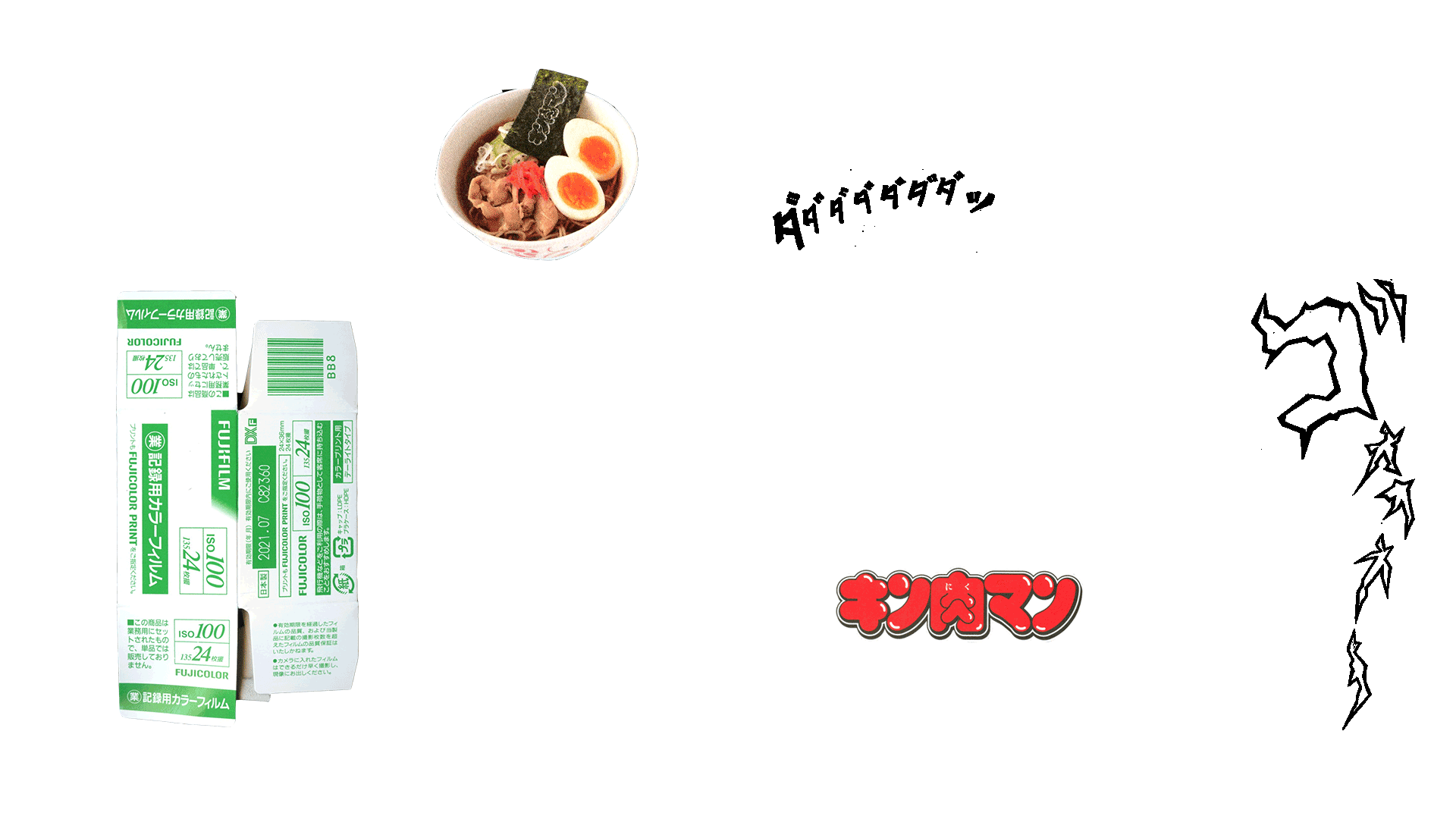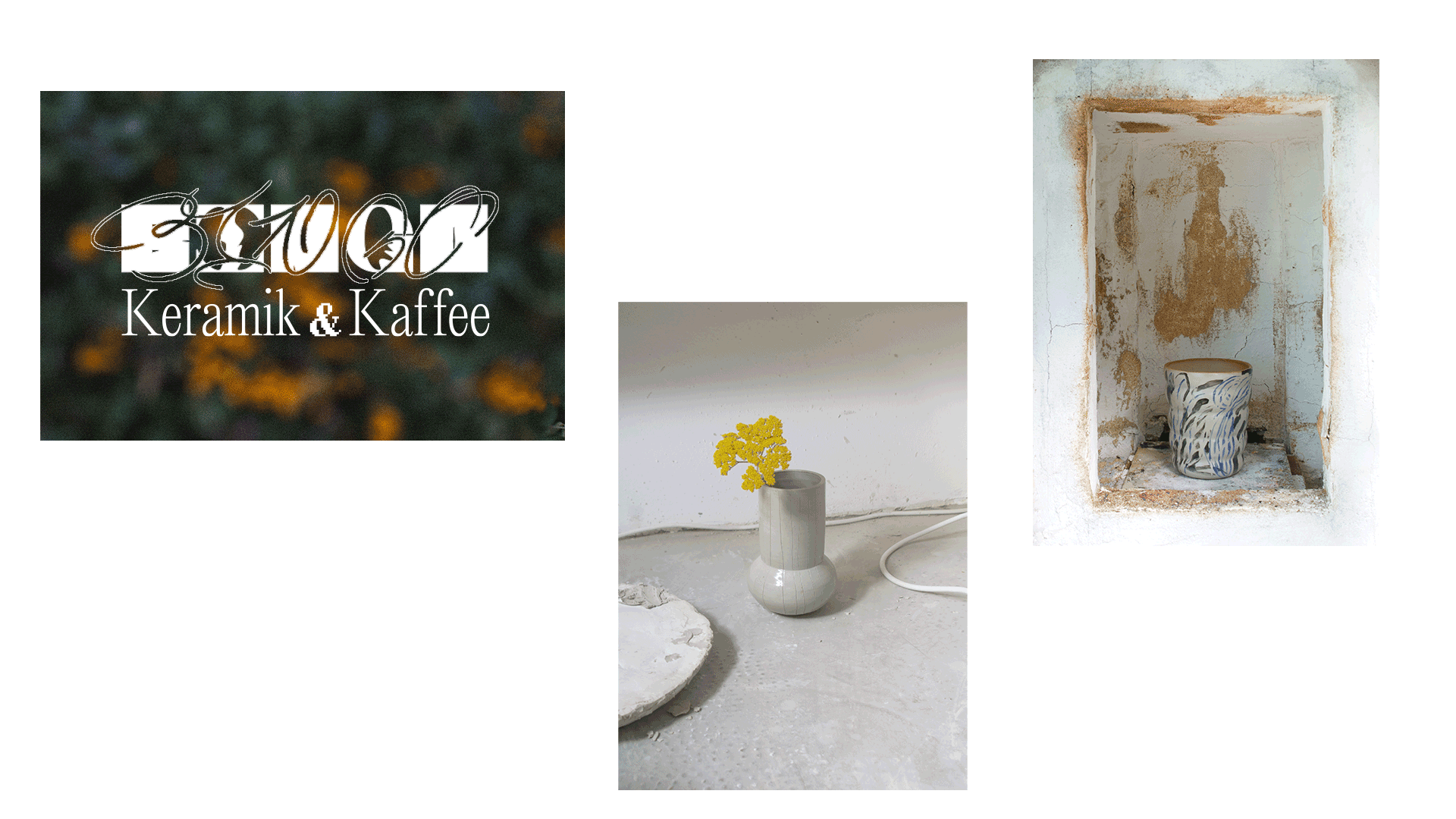Tokyo Sports Culture Zine

Tok
Intro
One afternoon in Tokyo I went to see an exhibition at Nezu Museum near Omotesando. It displayed an incredible story told in multiple paper scrolls about a demon who abducted the emperor’s daughter. The amount of detail, tradition, and culture displayed in this story is something I’ve never seen before. Every element had a purpose, nothing was aleatory, the cultural cues were astonishing, for example, the reason the demon was able to fool the palace guards was by wearing red pants, which at that point only high ranking army officials would wear. On the second floor of the museum, there was an exhibition on lacquer plates that were more than 200 years old. To give you some context, my country is just over 200 years old. But the most shocking part for me was that I had eaten from plates that looked exactly like those that same day. So not only were they able to display their traditions in museums, they were living them every day. This ignited such curiosity in me that I decided to dive in to try to find out how tradition is being kept alive in other aspects of life.
With the Tokyo Olympics 2020 (well, I guess 2021 now) coming up, I thought that exploring this theme in sport would be amazing. I set out to find out things like what does basketball look like in Japan? Are kids interested in traditional sports like Sumo? If so, why? Is it a spiritual connection? Are they fanatics? Do they play to win or to have fun? I wanted to find out how this profound generational change was manifesting in Japan, is the mindset of our grandparents still prevalent or has it morphed into something young kids created?
As long as I was exploring sport in Tokyo, I wanted to look at other points of view too, like how do sport and gender relate? Especially keeping in mind that in Tokyo half of girls don’t do sport. Continuing this theme, I wanted to explore where and how are minorities represented, not just women but members of the LGBTQ community, disabled athletes, athletes of color, etc.
Another interesting point to look at was how has the westernization of culture affected sport. I knew that football and baseball are the most popular leagues in Japan, but how did this come to be? When did this shift start to take place and how similar are sports like football perceived in Japan vs. Europe or Latin America?
I’m not sure if by the end of this project I answered all of these questions, but I did discover a million things I didn’t know before. The following pages are a compilation of interviews, research, collages of things I found interesting and ultimately what this experience has been for me. I hope you enjoy it!
History of Sport in Japan
One of the key ways to understand the context of what I was seeing in my time in Tokyo was doing proper research on Japanese sports. I knew about the traditional ones, sumo, judo, taekwondo, but I had no clue how more modern and western sports assimilated into this mindset. To understand this I first needed to look into the history of sport in Japan.
The obvious starting point for me was Sumo, the best known Japanese sport, which coincidentally traces a good parallel to the Olympic games. Both of them have religious origins; Olympics as a ritual to Zeus and Sumo to Shinto religion, and they both aimed at admiring the human body as mighty.
Sumo was actually born as a religious ritual. It is said that once the survival of Japanese people waged on a Sumo match. This religious connotation can still be seen in Sumo today. For example, in the dohyo which is regarded as a sacred place, and the multiple rituals and presentations throughout matches, tournaments and even practice sessions.
Most Japanese sports are derived from fighting techniques. These evolved into competitions which in turn developed into sports and entertainment. One particularly interesting origin story is karate, which translates to “empty hand”. This martial art first became known in Okinawa as a descendant of Kobudo. Some stories say that during the war people got their weapons taken away, so they learned to fight with agricultural tools, when these got taken away they had to learn to fight only with their hands. This very solemn origin of Japanese sports can sometimes shine through some of the other, more modern sports.
During the Meiji Era (1800s) football and baseball were introduced in Japan, along with the term ‘sports.’ Most of these sports were introduced in Bukatsu, which is the extracurricular sports club system in Japanese schools. At first, only interested kids would participate, but after World War 2 all kids were encouraged to join. This was in part, due to an effort by the government to take kids away from the ‘soldier’ mentality that the previous generation had been raised on.
Bukatsu, combined with manga, was one of the main reasons sports became wildly popular in Japan. High school bukatsu competitions became a nationally watched event that brought great pride not only to the kids participating but to the schools as well. However, after some time of bukatsu being implemented, it started to shift its “democracy centric” mindset to a more disciplinarian and educational one. Most kids still participate in bukatsu with extensively positive experiences, although we can’t ignore the trend of kids shifting to private after school programs as well.
Bukatsu and manga also helped popularize some relatively new sports in Japan like basketball and volleyball with stories like Haikyu!! and Slam Dunk. This also ignited interest in other cultures. Around Tokyo, hundreds of different cultures can be enjoyed, especially because they are so well incorporated into the city. I think this was the key for me to understand the sports culture. Even though games and elements can come from abroad, they will always be carried out in an inherently Japanese way, respecting both the centennial traditions of Japan as much as the influence of the country of origin. This is how now we can appreciate a basketball game, with cheerleaders, chants, and players who bow to each side of the stadium after the match.
Tokyo University Sumo Club
ClubCaptain Noguchi-san
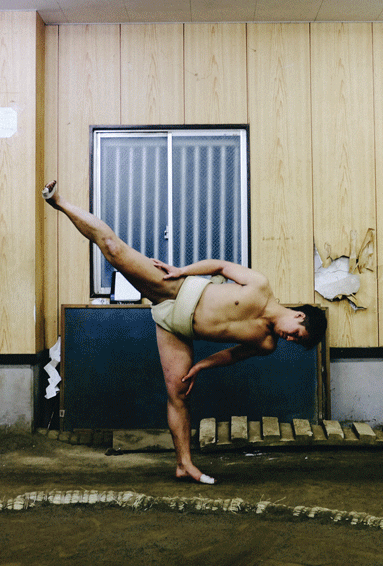
1. What made you choose sumo?
なぜ相撲をやろうと思ったのですか。相撲を始めたきっかけはなんですか。
Q元々相撲を観るのが好きだったという部員がほとんどです。僕の場合は大学からスポーツを始めたくて、体格的にも相撲が良さそうだと思って始めてみました。部の雰囲気もとても自分に合っていたということもあります。
Most of the members say that they liked watching Sumo originally. In my case, I wanted to start a sport when I became a university student. I thought my physique would fit Sumo. Another reason is that the atmosphere of the club was very suitable for me.
2. Sumo is regarded as one of the most traditional Japanese sports. How important is tradition to you?
Q相撲は日本の最も伝統的なスポーツのひとつとされています。あなたにとって、伝統とはどれくらい重要なものですか。
A→守るべきものだと思いますが、例えば「女性は土俵に上がれない」と言った時代遅れの考え方は廃れて然るべきだと思います。相撲は神事としての伝統面が意識されがちですが、それ以上に稽古方法やまわしといった実技面での伝統の方が重要だと思います。四股のやり方ひとつを取ってみてもそこには確かな伝統があります。
I think tradition is something to be protected and should be inherited. But, an outdated way of thinking like “Women cannot enter the ring (Dohyo) because the ring is regarded as a sacred precinct” should be obsolete. People often tend to be conscious of the Shinto ritual aspects as a tradition but, Sumo’s technical and practical aspects such as its way of training and wearing the belt (Mawashi) should be regarded as a tradition as well. We can even identify a tradition in Shi-Ko which is a practical training to strengthen the lower body.
3. Is spirituality a big part of your connection to the sport?
Qあなたと相撲との関係において、精神性は重要ですか。多くの部分を占めていますか。
A→競技として、試合においてはメンタルというものは重要だと思います。しかしながら、例えば自分は今神事をやっているのだ、というような自覚はありません。あくまで格闘技として相撲を捉えています。
In a competition, mentality is very important during the match, but there is no consciousness of “I’m doing a Shinto ritual right now”. For me, Sumo is just one of the fighting sports (martial arts).
4. What are your goals when it comes to sport?
Q相撲においてあなたのゴールは何ですか。(例えば、プロフェッショナルになりたいですか。それとも他のキャリアや目的のためですか。)
A→ズバリ、強くなることです。それはプロになるとかそういったレベルではなく、例えば国公立大会といった自分の所属するレベルの中での強さを極めていくことを目的にしています。もちろん、プロレベルまで強くなれたら嬉しいですが、事実上それはとても難しいことです。だから自分が可能な限り強くなることを目標にしています。
I want to become much stronger definitely! It doesn’t mean I want to be a professional wrestler. I’ve been aiming to pursue my strength in the division in our league (National and public university’s league), for example. Of course, I’d be happy if I could become as strong as the professional level, but in fact it’s very difficult. So, I’m trying to become as strong as I possibly can.
5. Do you think your generation of wrestlers is different from former generations? How?
Qあなたの同世代の相撲選手と、あなたよりも年上の世代の選手では違いがあると思いますか。あるとしたらどのような違いですか。
A→特に違いはないとは思いますが、強いて言うならばトレーニングの内容が少し違うと思います。最近の方が科学的に筋トレを取り入れている選手が多いように感じます。
I don’t feel so much of a special difference. If I had to say, the training ways are a little bit different. I feel many wrestlers have recently been adopting muscle strength training in a more scientific way.
“An outdated way of thinking like ‘Women cannot enter the ring (Dohyo) because the ring is regarded as a sacred precinct’ should be obsolete.”
6. How diverse do you think Sumo is in terms of gender, nationality, ableism, etc.?
Q相撲にはどのような多様性があると考えられますか。例えば、性別、国籍、ハンディキャップといった点などにおいて。
A→競技の性質上、男性の格闘技というイメージが強いですが、女子相撲も独自の進化を遂げていると思います。国籍も日本人が多いのはもちろんですが、モンゴル人をはじめとした色々な国籍の人が取り組んでいると思います。
Due to the nature of the competitive sports, many people might have an image of Sumo as a fighting sport for males. Nevertheless, Sumo performed by female athletes has been developing in its own unique way. Of course, obviously Japanese people make up the largest Sumo population, but I think people from various nationalities including Mongolian have been developing in Sumo as well.
7. Do you think the increasing contact with western cultures is impacting sumo and other traditional sports?
Q西洋文化とますます交流が盛んになることによって、相撲や他の伝統的なスポーツに影響があると思いますか。
A→相撲にほかの格闘技やスポーツの要素が採り入れられることでさらに相撲の技術が変わっていくかもしれません。
体格の大きい西洋人が本格的に相撲を始めたら面白いことになると思います。
Sumo’s techniques may change further by incorporating other fighting sports and other sports elements. I think it would be interesting and many things would change if Western people with a large physique start Sumo seriously.
8. The international sumo federation has been trying to make Sumo an Olympic sport, do you think this is important to the sport? Why?
Q国際相撲連盟は相撲をオリンピック競技にしようと目指していますが、相撲にとってそれは重要であると思いますか。それはなぜですか。(重要である場合も、そうでない場合も理由がありましたら教えてください。)
A→オリンピック競技になれば競技人口拡大は間違いないと思いますが、正直に言ってオリンピック競技にはなり得ないと思うので重要ではないと思います。オリンピック競技になれない理由はこの競技があまりに特殊で、世界的にはまだ広く普及していないからです。とりあえずはアマチュア世界大会の知名度をあげるところから始めるべきだと思います。
There is no doubt it would expand the Sumo wrestler population if it makes it to the Olympic Games, but honestly, it’s not so important since I don’t think it will be realized. The reason why Sumo cannot be an Olympic game is that it’s too specific and has not become popular around the world yet. For the time being, I think we should start by popularizing the amateur world championships as a first step.
9. Are you excited about Japan hosting the Olympics?
Qオリンピックが日本で開催されますが、わくわくしていますか。どんな気持ちですか。
A→正直あまり実感が湧いておりません。運営側にもお金の面で不透明なことが多いので、複雑な気持ちです。お金をかけるべきところを間違えているのではないかと思う面も多々あります。個人的には人混みが好きではないので、東京オリンピックもテレビからその様子を眺めるに留めると思います。
To be honest, I still cannot believe that Japan will host the Olympics games. It hasn’t sunk in yet. It’s a complex feeling because there are many unclear financial things on the administrative side. (A huge amount of construction fees for Olympic stadiums and locations, for example.) I often feel like there are other things and places where the money should be properly spent for the current and future society of Japan.
10. How do you feel brands like adidas can help young athletes like you?
Qアディダスのようなブランドが、あなたのように若いアスリートの方々に対してどんなサポートができると思いますか。 ブランドに期待することなどがありましたら、教えて頂けますか。
A→4年間使い続けられるようなちゃんとした製品を学生割引などで比較的安く購入できれば嬉しいです。
I would be happy if I could buy a good product with excellent durability that could be used through four years (university period). Also, it would be appreciated if you could provide a student discount at a relatively cheap price.
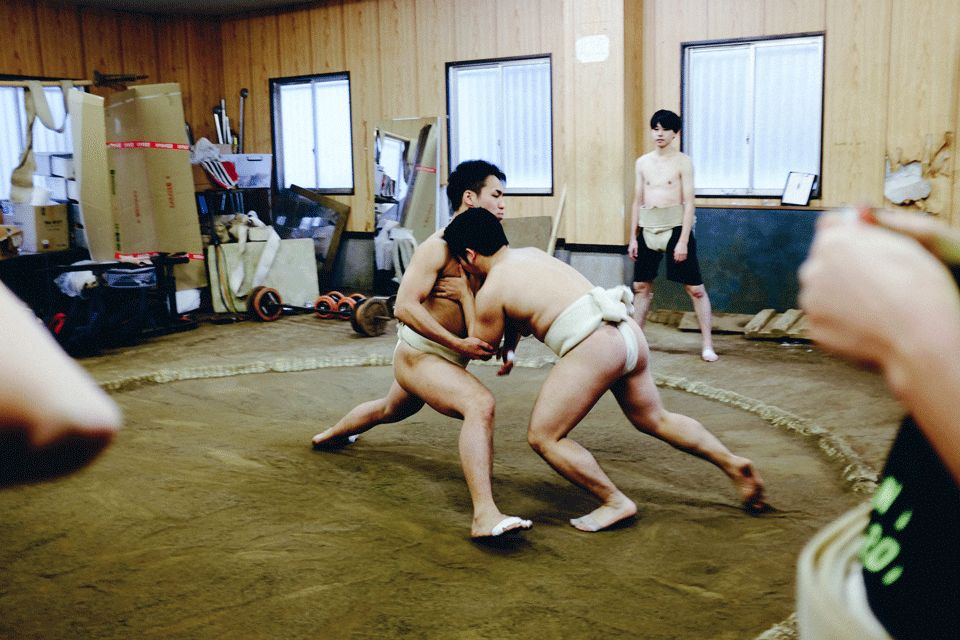
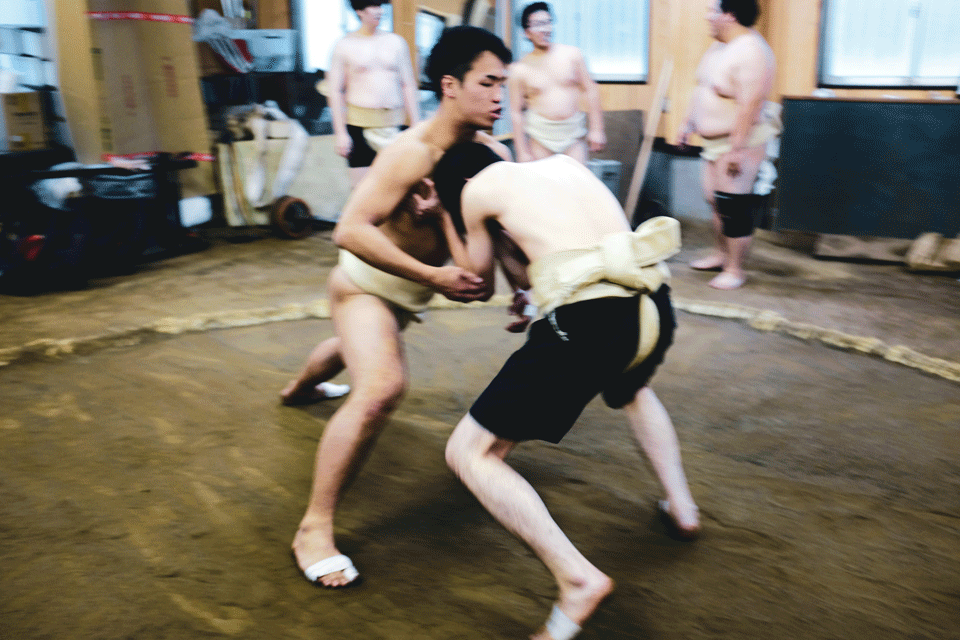
Club Members
1. What made you choose sumo?
Student A: My “Senpai”, a senior class friend from my high school age, invited me to join this club. After joining the club, I started to feel Sumo is really interesting.
2. Sumo is regarded as one of the most traditional Japanese sports. How important is tradition to you?
Student A: Difficult question…Basically, I’m doing Sumo as I would do any other sport. In the world of professional Sumo, “Oozumo,” they value tradition and the Shinto ritual. I feel it’s difficult to describe how general people actually feel about the sport... If I had to choose a word, it is a combination of a traditional thing and “Kogyo,” a kind of public performance or entertainment business maintained historically. [“Kogyo”: It is a type of business that manages many kind of performances like art and sports events and provides them to the audience by selling tickets. In Japan, it is said that Kogyo was started to collect charity fund money in the past to build Shrines, temples, public arches and roads, including their maintenance.]
Student B: I suppose “Oozumo” values tradition very much. But amateur sumo like our university league is regarded the same as other sports such as rugby or American football. Although our uniform is completely different as you see…I’m almost bare, haha.
3. Is spirituality a big part of your connection to the sport?
Student A: Spirituality is very important in the connection to Sumo.
Student B: In our club, coach advises and encourages us to “have a Japanese Sword in your mind.” Japanese Sword represents “Bushido spirit” or strong mentality, preparedness. If someone showed weakness during the training, coach often boosts us and our mood with the word.
4. What are your goals when it comes to sport?
Student A: I want to be as strong as possible. My goal isn’t to become a professional, but I want to improve myself as an amateur athlete.
Student B: I want to enjoy sumo as a sport during my four years in university.
5. Do you think your generation of wrestlers is different from former generations? How?
Student A: I don’t think there is much difference… Recently in the professional Sumo world, the number of “Elite Sumo Wrestlers” has been increasing, these are athletes who have been taking enhanced special training from their childhood to be professionals.
6. How diverse do you think Sumo is in terms of gender, nationality, ableism, etc.?
Student A: In the world of professional Sumo, there is a certain tendency that women’s Sumo is disregarded. I think one of the reasons is women’s sumo was originally a kind of show in the Edo period in which women being bare to the waist do sumo wrestling. As time and public morals changed, it was banned in the past. But, due to such historical custom, women’s sumo is identified as a kind of show and might not be acceptable in professional Sumo. On the contrary, in amateur Sumo, everyone can do sumo as a sport regardless of one’s gender, nationality or whatever.
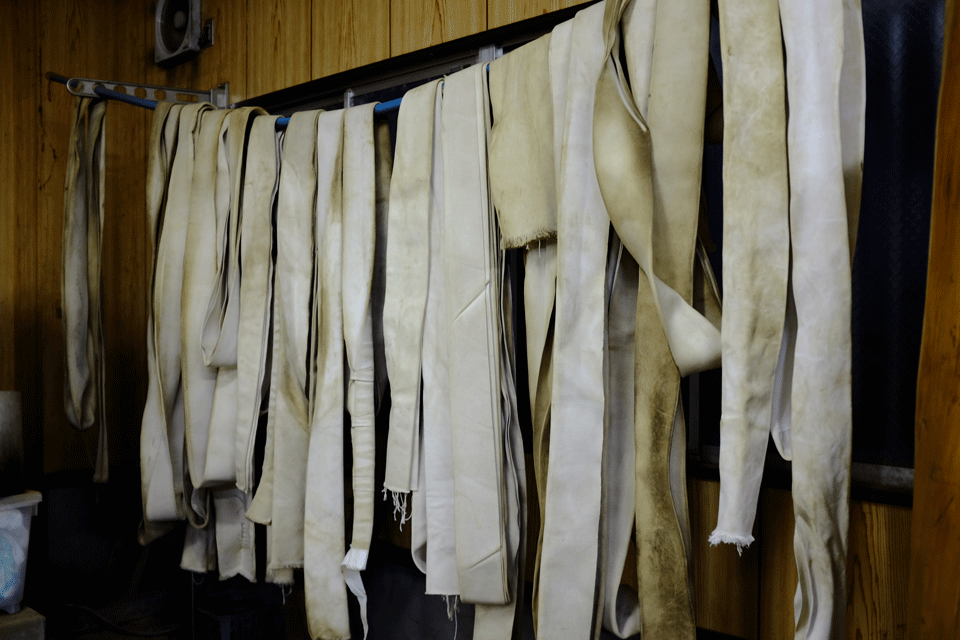
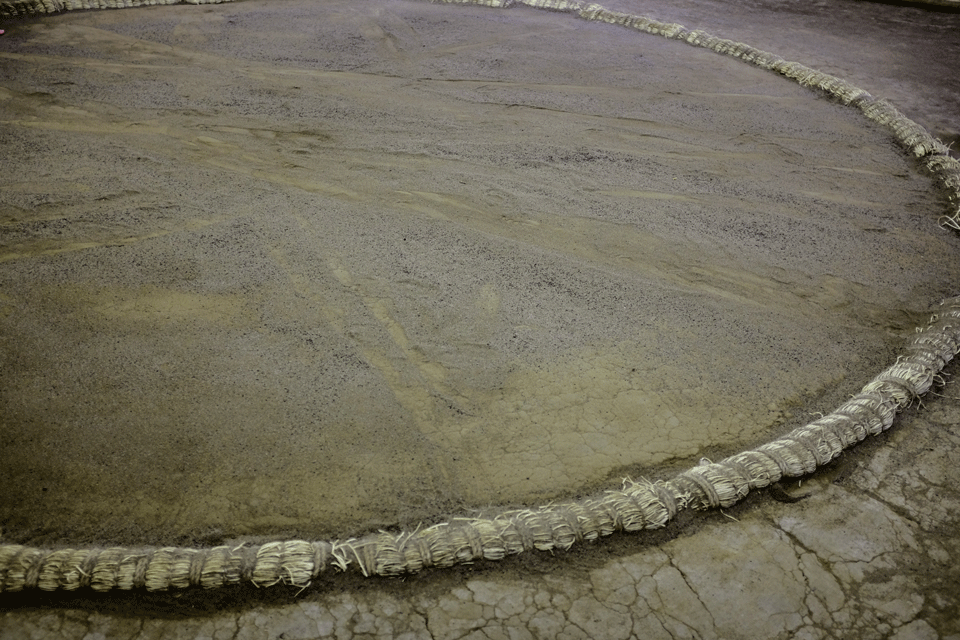
7. Do you think the increasing contact with western cultures is impacting sumo and other traditional sports?
Student A: Technical improvement might become necessary. For example, some techniques used in Wrestling for tackle are being used in Sumo.
Student B: Our generation has grown up within mixed cultures where already western culture has been prevailing. So, I don’t think it would affect the mentality.
8: The international sumo federation has been trying to make Sumo an Olympic sport, do you think this is important to the sport? Why?
Student A: If Sumo becomes an Olympic sport, I think it would be fun. But, I feel like it is not realistic. It’s not so important for Sumo.
Student B: For example, if Sumo became an Olympic sport and people’s awareness increased, I would be happy. If the number of Sumo population would increase in university league, I’d be glad.
9: Are you excited about Japan hosting the Olympics?
Student A&B: Yes, we’re very excited to host the Olympics in Tokyo!!
10: How do you feel brands like adidas can help young athletes like you?
Student A: If there were cool and fashionable products which would also fit to large size for Sumo athletes, I’d be very happy.
Student B: As local adidas products are very small size for us. If I could wear something cool maybe the perception of Sumo might improve or change. For example, taping band made with reflecting or shiny material might be eye catching. It’s interesting, don’t you think so?
Cool products will be expected! Thank you very much.
Interviews
Tiger
Marketing, 25 years old.C: What was your first introduction to sport?
T: I think swimming school was my first entry to sports. Proper sports. As a kid I used to go snowboarding with my family every year, I used to do some ice skating. We did a lot of winter sports as a hobby. Even at school they offered ice skating classes and ski trips, so I used to always do those trips which kinda helped me begin going to classes for ice skating. Also, swimming school I went every week with my sister.
C: In school?
T: This was extracurricular, not in school. That’s where I started off and then at school, I was in all kinds of sports, but I really got into basketball in primary school and I continued playing in junior high school as a bukatsu.
C: Do you consider yourself an athlete?
T: Good question. I do think of myself of an athlete, but I think the definition of athlete might have different perspectives for everybody, I mean I feel like I’m an athlete.
C: What would be your definition?
T: For me, it would be someone who has incorporated sports in their daily lives. That doesn’t mean that the person needs to be playing on a professional level, it can be someone who is exercising as a hobby or for health benefits but just generally someone who enjoys sports in their daily lives.
C: And as for your athlete mentality, are you competitive? Is it more emotional or is it about logic and strategy?
T: I mean I watch a lot of basketball, I used to watch more when I was playing basketball in bukatsu, but I saw it more as a way to connect with my teammates, to hang out with friends. I didn’t really see it as a competitive sport, obviously I practiced hard to play better but I was never aiming to the point where I wanted to one day become a basketball player, so it wasn’t really competitive. For me it was more to do with being part of a group, being part of something and friendship, so it was more of an emotional connection, not to the sport but to what basketball brings.
C: So, do you consider yourself a fanatic? Do you have a team?
T: I’d like to say yes, I wish I could tell you a name of a team that I cheer for but honestly, I can’t. I root for pretty much any team. It’s weird I really do wish that I had a team that I was always cheering for, that I can tell people I’m a fan of. I’ve always been kind of dying to have that.
C: You can cheer for Boca Juniors!
T: (laughs) yeah, I’ve never had the chance, I’ve never felt that intense to an actual team.
C: Yeah, it feels like sports is a bit more personal to you and not so like established teams and FIFA.
T: Yeah, maybe depending on the sport as well
C: How about for example the NBA? Is it not very relevant to you?
T: Not really
C: Even in bukatsu for example would you talk about professional teams?
T: No, not at all. We would talk about teams we’re gonna play against but not talk about NBA or professional basketball.
C: How about the 2020 Olympics? How do you relate to them?
T: I think about it all the time, the moment that the 2020 Olympics was decided to be held in Japan that was it for me, that just brought the excitement, I couldn’t wait, I still can’t wait. It’s always been one the things that will be in my head. I think it’s one of those things that doesn’t come often, the timing is amazing and yeah I’m super excited I really can’t wait.
C: Why do you mention the timing?
T: For me it was more like in terms of me personally. It’s to do with when I was thinking what I wanted to do as a career, I always had this thoughts that I could somehow be involved in the 2020 Olympics just because I thought about Tokyo, me being a foreigner, living in Japan, knowing Japanese culture and having the Olympics in 2020, watching the Olympics from far looking at other countries hosting the Olympics and looking at how much energy and effect it has on the country, knowing all that, seeing all that on tv and imagining what would happen for the 2020 Olympics and at a time where I am fully grown up and seeing the world in a different way than I used to, I feel like this is the year that I could actually contribute in a way to the Olympics.
C: That’s amazing! Speaking of the culture of Japanese sport, how do you feel about the culture surrounding the J League and bukatsu, the more “systematic” part of it.
T: Me personally, especially because I’ve been brought up loving sports, I’m more positive, happy and excited to have the Olympics here, the J League is doing pretty well but looking at bukatsu, looking at my friends I think especially females have a harder time to relate to sports in general in Japan and that also contributes to having a positive relation to the Olympics and I think that’s due to the fact that in Japan we have some sports that are obviously more male dominant and I think we are further behind in that sense compared to other countries, we still have only a few female athletes that are getting as much coverage as male athletes and I think things like baseball football are massive in Japan but never the female football or even women softball tournaments. Never, maybe they might have one, but you never hear that kind of news. So, in that sense its very, not biased, but you see a lot of baseball, football but you don’t hear much about other sports, recently you hear more about rugby but that’s because the rugby world cup just took place but it’s not as diverse and I feel like living in Japan, we don’t get enough opportunities to engage ourselves in different kinds of sports. Even at school your choice is either Judo, kendo, it’s very limited and its very based on Japanese culture and tradition and very limited. It’s a hard question.
C: Yeah and the next question is even harder! What role do you feel girls and women play in this culture?
T: I think we feel like we don’t have as many options as male athletes have, even in bukatsu we would be playing the same sports, but I feel like— let’s give an example: in school, we have bukatsu, we all want to join bukatsu because it’s a big part of our school experience in junior and high school so we join but we never, maybe this is just me, but I felt like there was always gonna be an end to my basketball career, whereas when you look at the boys who were also playing basketball, football, baseball, I feel like they were more conscious that this was a possibility. I think for them it felt like they wanted to continue, or actually they could continue playing their sports up until university and perhaps even as a career option, but for some reason, maybe that was just my team, but I feel like it was very limited, the opportunities that we had were limited compared to the boys
.
“We are the ones that need to change this traditional mindset. I think it has to come from the younger generations.”
C: it has kind of this unspoken limit of “ok this is nice, but it will come to an end”
T: So so so, and I knew I wasn’t gonna continue playing basketball as a career, and I didn’t even think I was gonna continue into high school. It looks like we had equal opportunities to play sports but I think in fact it’s not as equal as we think, in that for girls who want to play sports who are male dominant like football there are very very few schools that have a female football club so even if a girl wanted to play baseball you won’t really see a female baseball club, you might see a girl joining the guys in the baseball club but that very very rare because baseball clubs have their own baseball culture that is very strict in Japan and to have a girl, I think people think that to have a girl in the baseball club is not acceptable. I think that it’s getting better nowadays but I still see no girls joining a baseball bukatsu at school.
C: And when they do, do you think they get treated fairly or they get bullied?
T: I wouldn’t think you’d get bullied, these days I don’t think you would, but before I wouldn’t be surprised if she would be bullied. I think once they accept you in a bukatsu its okay, I think it’s before that, it’s whether a girl can join a baseball club or not and usually they wouldn’t recruit any girls so the girls would not even have an option to try for a baseball bukatsu. I think once you are in the club the coach would treat you fairly as any other boy, whether that’s good for the girl or not I’m not sure.
C: Because that’s another issue. The difference between the actual rule set and the social component to it. For example, is it seen as masculine to be athletic? Is it badly seen if you are a girl who is super athletic, super strong?
T: Yeah, definitely. For me, we had a volleyball club and a basketball club. The volleyball club was very feminine so a lot of the “pretty” girls would join volleyball club and the more masculine girls, or I wouldn’t say masculine but your usual short haircut, boyish girls would join basketball club and that’s one example, and that’s what we actually had in my school and because of that notion, that perspective that people had, the actual girls didn’t even like volleyball. They joined the volleyball club because they know they would get that feminine image, which boys obviously would be attracted to. So yeah definitely depending on the sport there were these images, unwanted images, that me as well, that I have because that’s how it was. It’s not like I chose basketball because its masculine but once I joined basketball, I realized how the prettier girls were joining the volleyball club just for the image they would receive by joining the club and not to do with the actual sport. And on the other hand, basketball being a masculine sport which, I mean it’s hard to say because people have different opinions, but it’s rougher as a sport compared to volleyball but it doesn’t have to be a masculine sport.
C: Not at all, I mean, I always thought it was crazy to gender sports. I mean, if you kick this specific ball in this specific way its masculine and that way its feminine, it’s crazy.
T: Yeah it is, so even soft tennis club, it’s’ also very feminine but obviously boys wanna play soft tennis as well, but because its perceived as feminine boys won’t join the soft tennis bukatsu because once they join, other boys are gonna make fun of them for joining a feminine bukatsu, which is not even feminine. But then, it’s funny because soft tennis is “very feminine”, but regular tennis is “masculine”. It happens a lot.
C: Do you think things are getting better?
T: I think it is getting better compared to before, but it is a very gradual change that is taking too long.
C: What do you think needs to change and who do you think needs to implement these changes?
T: I think it’s us, the young people, the students who are in school wanting to join a bukatsu. We are the ones that need to change this traditional mindset. I think it has to come from the younger generations. Sports brands can help these generations to fully embrace this change but I think in the core it’s gotta be the young generation that needs to believe that there’s got to be a change and once they realize and get the confidence that they are the ones that can make the change I think that’s gonna be the most influential boost than television or pop culture. It has to come from us.
C: And from a brand perspective, do you think we should be focusing on making better product, or showing more diversity, or what do you think our role in this change should be?
T: As a brand I think what we could do is offer more opportunities so that girls and boys have equal opportunities to play a sport that they wanna play and not sports that they’re forced to play. I think we can help change this traditional mindset and the way to change it would be perhaps through product, perhaps through a movement that we can kick off but in the end what’s most important is offering them an opportunity where they can actually get involved in the sport that they are interested in.
Sakura & Mitsu
Brand Communications, 26 years old.Social Media Analyst, 27 years old.
C: What was your first introduction to sport?
S: In school. We have classes from elementary, but we have few choices for club activities, so I didn’t really belong to anything. So, when I got into middle school, basically everyone joined something, like sports clubs or band club. Some people like to do tea ceremony or some other things.
M: Can students create a club?
S: Yeah, you can create one if you want.
M: And do you have to be in one?
S: No, but its normal. We have plenty of time so it’s good to join something and I chose basketball because my mom used to do that, so I wanted to try.
C: Do you consider yourself an athlete?
S: That’s a good question. I think I used to be, but right now I’m so out of shape, I guess. [laughs]
“When I was playing basketball
I was competitive and emotional”.
C: What is your mentality towards sport? Are you competitive? Are you logical or sentimental?
S: I think when I watch sports, I can be more logical, compared to playing sports. But when I was playing basketball, I was competitive and emotional.
C: Do you watch sports?
S: Yeah, basketball. Both Japanese and NBA leagues.
C: Do you have a team?
S: Yes, so here I like the team in Tochigi because it is my hometown.
C: How do you relate to the 2020 Olympics (as an athlete)?
S: It’s pretty exciting for most of the Japanese people, I wanna watch some events live.
C: How do you feel about the Japanese sports system?
S: Regarding bukatsu for example, I don’t regret participating or anything, I’m happy to have something to be involved in but sometimes it’s really strict and you need to go to practice every day after school and you sometimes have tournaments or games on the weekends, so it’s quite time consuming, so it’s a big commitment. That’s part of the reason why I didn’t continue in college, cause I wanted to go abroad.
C: And how do you feel like girls fit into the sports culture?
S: I think that you can divide into two different groups, like one is really interested in training and being in shape. I feel like they also like sports, they care about how they look. The other one is they wanted to try sports but because of work or some reason they can’t start something new.
M: I’m curious to know how the environment, especially the school, can change the way you want to participate in a sport, especially for girls. I wanna know how was it like when a girl was playing a sport? Cause I feel like in Japan sports are more for guys. I feel like because of that mindset, girls tend to not get involved or are hesitant to take that first step into being involved in that sport. Even if they really wanted to, let’s say out of 10, one wants to but she kinds struggles into participating.
S: Yeah, I think especially in Japan, people tend to follow the majority.
M: How was it at your school? Was there any girl who was enthusiastic, or wanted to make a career out of sports?
S: Yeah there are, one girl was really good at skiing, and she won some championship back in school and she was pretty famous for it and super proud.
C: Do you feel like girls are given the same possibilities as boys when they finish high school to be professional?
S: I don’t think so. Some people go on to play for corporate teams after they finish college, they join the company and they keep doing sports instead of being professionals, but the total among the people is quite few so I don’t know. I don’t have any friends that actually considered being professional.
C: Friends both female and male?
S: Well, there is one guy who joined a J League football team.
C: Do you feel like things are becoming more equal?
M: I wanna say yes. I like soccer and I’ve seen documentaries about professional female players when they talk about how they grew up into becoming professional they usually say they would always participate in the boys’ soccer club because there wasn’t a girls’ soccer club at the time or they might have been a few, but there’s not enough so they can’t have a scrimmage. That basically helped her become better too, because she was competing against guys. But what they usually say is that they want to see more of a scene where girls can just play within girls so they’re comfortable and they don’t have to be hesitant when it comes to playing a sport.
S: Yeah, girls have certain opportunities but if you want to be a professional athlete it’s difficult because women’s sports entertainment is still small compared to men’s. I think it’s not only in Japan, but worldwide.
C: What do you think needs to change? Who should guide this change?
M: I think the kids’ mentality, the parents supporting, the government providing a space of opportunity for girls only or a time to have that happen when girls are comfortable enough to just join.
S: I mean, you can’t just say one group. It’s a combination.
C: So, for adidas, would it be a more cultural approach or from a product standpoint? Or actually going out there into the community and making things happen?
S: We don’t even have that much community in Japan, so maybe creating some space and a community for girls would be also effective.
M: You know there was an earthquake that hit in 2011 in Japan and a lot of space got wiped out and what adidas has been doing as corporate social responsibility, we would go and support. It’s been going on for like 5 or 6 years and a lot of people over there appreciate the initiative. What adidas does is we train the parents there to teach in school and they get certified. So, after reaching out, helping out and raising awareness, now all the people there at the community love adidas. So now we have a big market in that area where everybody loves adidas. Where at first, it was like all kinds of different brands but now everybody is wearing adidas. Imagine doing that for women, it would be great. And if we can squeeze in like a product in there, like asking them what they think beforehand or make it come alive like have them wear it, do the training and give us feedback. It would be about what the consumers want, not what we want them to wear. Before joining adidas, I used to work at a company where we teach kids the fundamentals of soccer and in this business in Japan, we have a lot of kids that are boys and we have another market for girls, so we have a lot of potential there. So what we did is create a separate event for girls only because there will be girls who participate in the exercise, but out of 20 kids there would only be like 1 or 2 girls, so we created a separate time slot for just them.
“Now we have a big market in that area where everybody loves adidas. Where at first,it was like all kinds of different brands but now everybody is wearing adidas.”
S: That’s actually quite nice because whenever I want to play basketball, I need to go to the basketball court, like in Yoyogi park but it’s always occupied by men so it’s really hard to join and actually play basketball
M: So, if we can organize something that is just girls, they won’t hesitate to join.
C: Yeah, that’s an amazing idea! I think it’s also about partnering up with local people who are already part of the community and have that outreach and it’s kind of just giving them a platform instead of imposing our way.
Kenta
Marketing, 24 years old.C: What was your first introduction to sport?
K: My mom was a big fan of soccer and she actually named me after a famous soccer player, a handsome soccer player. You know Shizuoka Prefecture? Its where mount Fuji is. That’s like a super famous prefecture for soccer, they have like really good bukatsu schools for soccer and a lot of players became professional and one of the players was Kenta Hasegawa and she loved him. Even though my dad didn’t play soccer, she made us play soccer and she named me after that player.
C: And did you guys used to watch soccer as well or just play?
K: Just play at first, when I was in kindergarten, so I don’t remember how I first started playing.
C: Do you like local clubs or foreign clubs?
K: Foreign clubs
C: Are you a fan?
K: Yeah, of Barcelona
C: But a proper proper fan? Do you buy the jerseys? And put up poster in your wall?
K: Yeah, the posters only sometimes. I follow every game. I mean I have a local team that I support but still, the level is not comparable.
C: How do you think you approach fanaticism? Like singing in the stadium?
K: I think the experience of going to the stadium is totally different that just watching soccer, because TV is the best tool to actually watch the game but feeling the atmosphere is totally different for me.
C: Do you feel you’re competitive when you play?
K: Yeah, yeah
C: Do you feel different when you watch the sport than when you play?
K: Yeah, actually when I’m playing, I’m more like one side and become super emotional and serious about it. When I’m watching two teams, and not my team I watch it like a normal fan, like relaxing, strategically. Like judging the moves but if I’m watching Barça or my local team then I get more like player mode.
C: And do you consider yourself an athlete?
K: I think so, yeah.
C: As an athlete how do you feel about the 2020 Olympics?
K: I’m so happy that I’m this age and welcoming the Olympics. The generation of the players is gonna be kind of like same generation as me or a bit younger so it’s really a great timing for me.
C: And speaking more of the sports system in Japan, what’s your opinion about it?
K: It’s really tough. It’s changing. Like US and Europe, we are becoming more westernised. Like before bukatsu was a big one, but now kids are choosing to play more in clubs outside bukatsu which is good because they don’t have strict hierarchy systems, so they can express their individual skills, so they’re gonna be much better and learn faster if they play in a club. But on the other hand, what’s good about bukatsu is the discipline. They become bigger as a human being and that’s really good because only 1% of the players are gonna be professional at the end so the rest 99% are just gonna be normal people and if they just chose to play soccer during that age, they can’t do anything else rather than soccer and then their careers is gonna be done. So not just athlete perspective but as a human perspective I think bukatsu should stay as it is and should be like a really unique tradition. And then for instance, whoever scores at the really rough situation is always the player coming from bukatsu for instance. It’s more like not the skill, but the mentality.
C: And regarding girls, how do you feel the system treats them?
K: Bukatsu is mainly for males. They have bukatsu for women of course but the tournament and competitions are not as popular as for the male sports. For instance, bukatsu baseball tournament in Japan is huge. If you reach that tournament people will talk about you for the rest of your life, but for women they don’t have that. I don’t know why. For volleyball male has it, female is getting bigger but still. Soccer, there’s no female. And then that’s why they are not celebrated as much as men. So that kind of competition will be the showcase for high school and then universities or clubs will offer them deals, but for females they have like much fewer opportunities for that kind of showcase so that’s I think the reason why they don’t get as far.
“I feel like for girls there’s nothing between bukatsu and professional.”
C: Do you think it’s getting better?
K: Yes, but super slow.
C: And where do you feel like this change needs to come from?
K: I think it is more top line professional clubs. But there’s potential in marathons for example, since professional female marathons are huge, they have female marathon bukatsu that are celebrated.
C: And do you think the Olympics will pave the way for more changes like this?
K: I think Olympics is an easy one, because Olympic sports are relatively already female friendly, like marathon, gymnastics, etc.
C: Yeah, mainly because there are no leagues for these sports.
K: Exactly, yeah.
C: And how do you feel like brands like us could collaborate in the change? Not even thinking about girls but thinking about changing boys’ mind to see girls as their equal?
K: Maybe it’s investing in universities. Boys are fine because if we sponsor professionals, they get money, they can pull the people from bukatsu, but I feel like for girls, since professional is not big, there’s nothing between bukatsu and professional, so maybe if the universities get more money from us, they can pull from high school bukatsu. Also, guys have more opportunities to go to university, even from sport sponsorships but for girls there are so few. I mean its budget wise, I think.
C: So basically, it’s investing in a platform for them to take the next step after bukatsu.
K: Yeah, and clubs are really not established for girls. So, I think university is the best platform to invest for the brand.
C: How do you think athletes who are girls feel in society? Do you feel like they are frowned upon, like considered masculine?
K: That’s what I realized, here girls think skinny is the best, whereas in America you can become bigger and bigger and it’s almost like better. So that’s like just culture.
C: I think it is, and maybe that’s another thing we can do, start to portray different body types
K: Maybe it’s the inside that matters for Japanese women, not just showing ads with blonde girls working out, that’s not going to work for us, I think. If it’s more like maintenance of the body, of health it might work better.
Yoda
Strategic Insights, 32 years old.C: 50% of girls don’t do sport in Tokyo, do you have any clue as to why that is?
Y: I think there are two aspects to it, one comes from a social perspective and the other one is a sports environment aspect. I think the first one, even though there is an increased momentum in female empowerment, even in workforce, there is still a tendency that women are preferred to be more feminine in terms of their behaviour, physique,etc. That’s the social aspect. The second is, not only for female but also for male, that sport is not a part of culture in Japan that generates enough money, unlike USA or Europe. For example, in the US even high schools have big stadiums and generate money to just operate by themselves. However, here in high school, teachers are coaching the sports and it’s not like they are professional, maybe they just played that sport in the past. Sport doesn’t generate enough money not only in high school or college, but in professional leagues as well, we have only six professional leagues, soccer, baseball, rugby, basketball, table tennis just opened in October, and Sumo. That’s pretty much it, and I think within those six, only three are making enough money, baseball, soccer and sumo. So, it’s just the fact that sports is limited for some people so less people are trying to like follow their dreams. Then especially for female athletes, there is no professional leagues, except soccer, but even though we call it professional that doesn’t mean that they can earn enough money by just playing, they also have to work a regular job.
C: How important do you think diversity is for kids/teenagers?
Y: A good question. I don’t know about education nowadays, but it is a topic that’s coming up. I don’t think it’s actually being taught in a proper way, it just comes around here and there, on TV and stuff. Especially if you look at the sports environment its still very male dominant, even for adidas Japan, we have way more male employees than female.
C: Yes, because I also noticed a big difference in how US kids talk about diversity and social, racial issues and I don’t know how relevant that is to Japan.
Y: I think there’s the aspect of what I mentioned, that it is not being properly taught. But also, you’ve been here for what three months? You kind of realize that Japanese people don’t express their emotions and opinions much. That’s part of it too, Japanese people are very cautious about what they talk about in public, even though they may have an opinion, especially regarding these sensitive topics. I guess that’s the main difference.
C: Do you think there is a generational difference with this too? It’s true that everywhere in the world there is a generational gap right now but in Japan it seems to be even more pronounced. How different do you feel this generation is from past ones?
Y: I think for example there’s more girls playing sports. There’s also a lot of Japanese people marrying foreigners and having kids of mixed ethnicity. The environment is really changing as well. However, in Japan if everybody says right, everybody goes right. It’s very hard for a Japanese person to go against the majority. I guess that ties back to a couple topics we talked about already, girls not playing sports because there’s not much support in the younger female generations from their parents, teachers, etc. There is a change from back when I was young, and back from my parents were young, there is a huge difference in multiple aspects of culture, like receiving information in smartphones vs. newspapers, but if we want to change something its very hard.
Team mentality
Physical Health & Strength
Hierarchy Based
Mind-body Dichotomy
Seriousness Over Fun
Tenacity
Purity
Winning is Everything
C: I think one of the topics I heard the most was westernisation of culture. Do you think this influences the way this generation approaches sport?
Y: Depending on when you are comparing vs. now. If you compare to when I was a kid, I don’t think it changed much. Because the two dominant sports in Japan are soccer and baseball and I don’t think it changed, those have two of the longest professional leagues in history and they’re popular enough that they’re being captured as the theme of manga. There’s actually a study conducted that says that of the people who play sports, 20% have been influenced by manga to do so.
C: A lot of sports in Japan, Sumo for example, started as an almost religious experience. Sport in Japan has always had a spiritual undertone, do you think this is still the case?
Y: I think so, there’s eight elements that comprise the Japanese mentality when it comes to sport. I think it’s very valuable.
C: You remind me of when I went to a basketball game, and after the game, all the players bowed to every side of the stadium, which kind of has this spiritual connotation of respect.
Y: Yeah, when you take a look at sports in Japan, there’s not a big fun element, or entertainment element. It has to be taken seriously enough for you to compete against your opponent instead of you just having fun. You have to have harmony within your team, rather than just you doing it by yourself.
C: Do you think this is also the case for high school and college?
Y: Everybody.
C: There seems to be a trend of kids leaving bukatsu for private after school programs, why do you think this is?
Y: Well, bukatsu used to be mandatory, although that’s becoming less common. Either you belonged to a cultural club or a sports club. It used to be mandatory for middle school and high school. PE, which we call Tai-iku, is a leftover of a military program, implemented right after WW2. Its meant to enhance your physical and mental ability, it was more of a training. However, bukatsu is a more standard version of Tai-iku, but you focus on a specific sport. So compared to US, you can change your sport season by season, here once you join you go through middle school or high school, maybe both, playing the same sport. I guess some people don’t really like that much of a commitment to a specific sport, or they like sport but they don’t like the senpai-kōhai relationship with others in the team. Or maybe they are doing bukatsu for a certain sport but they want to do other sports outside of bukatsu.
C: What do you think kids want to get from after school programs? Sp Y: I don’t think when they join they have an intention, because it was mandatory. And then, it depends on the kid, maybe they want to become professionals, maybe they want to have a friend who does the same sport, or maybe they want to belong to a group.
Special thanks to:
Yuki Kobayashi,
Yamada Noriko,
Eric Chan,
Tokyo University Sumo Club,
Tiger Williams,
Sakura Ishibashi,
Kunimitsu Matsuo,Kenta Nagase, Ryote Higuchi
Sources:
History of Sport in Japan: 1. Yoshitoshi, Tsukioka. “Artist: Tsukioka Yoshitoshi (月岡芳年).” Lyon Collection of Japanese Woodblock Prints, 1865, woodblockprints.org/index.php/Detail/Object/Show/object_id/403. 2. Guttmann, Allen, and Lee Thompson. “Japanese Sports.” Google ubNX, Google, 2001, books.google.co.jp/books?hl=ja&lr=lang_ja%7Clang_en&id=lbOau1trIMMC&oi=fnd&pg=PR9&dq=history%2Bof%2Bsport%2Bin%2Bjapan&ots=wAsljMJ9gA&sig=2f83CqidXf0YPS7-Anhf7h3Jdo0#v=onepage&q=history%20of%20sport%20in%20japan&f=false. 3. Ozaki, Masataka, and Kaneko Fumihiro. “A HISTORY OF POST-WAR SPORT POLICY IN JAPAN AND THE UNITED KINGDOM.” Hitotsubashi Journal of Social Studies, Hitotsubashi University, 1 Dec. 2011, hermes-ir.lib.hit-u.ac.jp/rs/handle/10086/22129. 4. The Editors of Encyclopaedia Britannica. (2019, June 14). Karate. Retrieved from https://www.britannica.com/sports/karate 5. Okinawa Kobudo. (n.d.). Retrieved from http://www.oshukai.com/index.php?m=16 6. Kai, R. K. H. S. (n.d.). Brief introduction about History of Ryukyu Kobujutsu and our Society. Retrieved from http://www.ryukyukobujutsuhozonshinkokai.org/011_en_history.html 7. Bukatsu in Anime and Manga: Club Activities in Japanese schools. (2017, January 9). Retrieved from https://manga.tokyo/otaku-articles/club-activities-in-japan/
